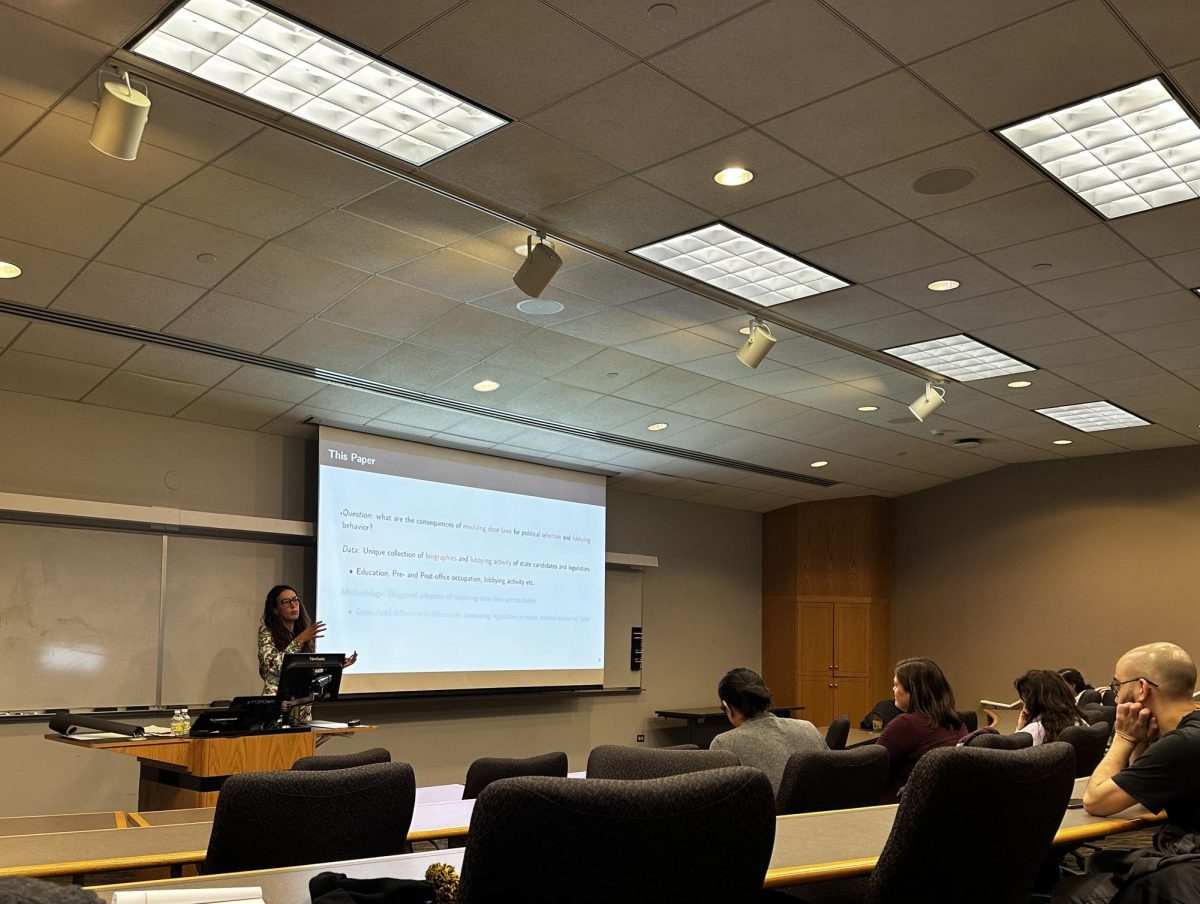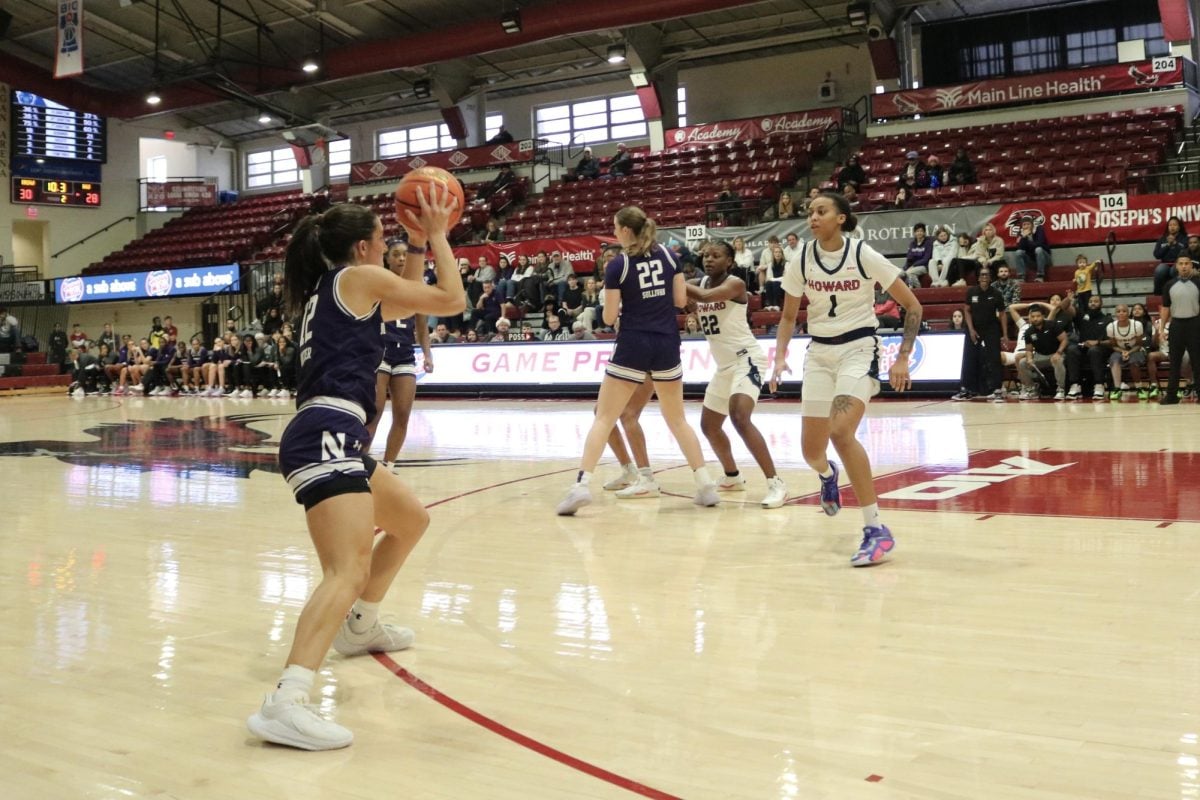Economics Prof. Silvia Vannutelli spoke on the impact of revolving door laws, which prevent public officials from engaging in lobbying activities during and after their tenures, at an Institute for Policy Research talk Monday afternoon.
Vannutelli spoke as part of IPR’s Fay Lomax Cook fall colloquium series, which has allowed IPR fellows to present on policy research for two decades.
Political Science Prof. James Druckman introduced Vannutelli. He said that, despite just receiving her Ph.D. in 2021, Vannutelli has already published five papers — each with remarkable policy implications stemming from economic research.
“Silvia asks really big, important questions,” Druckman said. “She uses extremely clever research designs … and has also been very active in enhancing opportunities for women in economics, which is a particularly important endeavor.”
In the discussion, Vannutelli contextualized the common career pipeline from public official to the private sector — in particular, from politician to lobbyist.
She said this transition can be problematic because ex-officials who become lobbyists have unique access to legislators, officials and privileged information.
She referenced the ComEd scandal in early 2019 as an example of this transition. The scandal resulted in the indictments of four lobbyists, who attempted to bribe former Illinois House Speaker Michael Madigan into assisting with the passage of a law favorable to electric utility company ComEd.
“The general idea here is to introduce what is called a cooling off period, so a period of time between the moment in which you leave office and the moment in which you start working as a lobbyist,” Vannutelli said. “In doing so, you reduce the risk of conflict.”
Vannutelli demonstrated data proving Illinois has the highest proportion of legislative officials who register as lobbyists within one year of leaving office.
More broadly, Vannutelli’s research concluded that revolving door laws reduce the number of public official who become lobbyists. She also found they increase the probability of uncontested elections by reducing the number and quality of potential challengers and increasing the incumbents’ likelihood of running again.
“I can imagine that incumbents with 10 years of experience in government are completely unaffected by this – they’re really doing well either way,” said sociology and political science Prof. Anthony Chen, who spoke at the series earlier this fall. “Their outside options might go up, but their inside options go up too — the longer they stick around, the more connections and seniority (they have).”
Vannutelli said lobbying data is tracked differently in different states, posing a challenge for her research.
However, she said, herself and her co-authors concluded that there was no clear pattern between states’ political leanings and their lobbying laws nor public officials’ gender and their likelihood to enter lobbying.
“Most of the research is focused on estimating the value of (political) connections and showing that indeed lobbies value legislators that are connected,” Vannutelli said. “What we’re trying to do here is take a step back and think about how the removal of the prospect of becoming a lobbyist affects decisions to run for office.”
Email: [email protected]
Twitter: @noracollins02
Related Stories:
— Anthony Chen talks affirmative action at first Institute for Policy Research Colloquium
— Diane Whitmore Schanzenbach to step down as IPR Director
— Buffett Institute and McCormick host second annual Joint Conference on AI and National Security


















